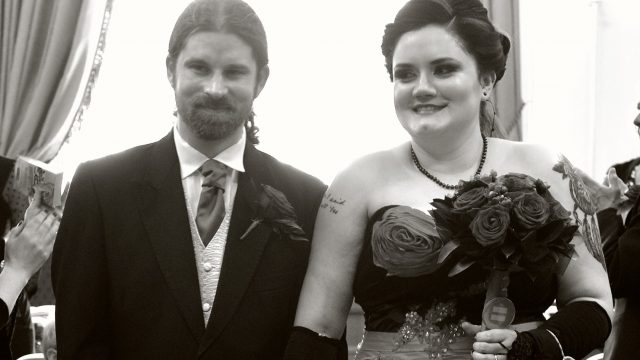There are many reasons you might be reading this website. Perhaps you are struggling with your mental health at the moment or have struggled in the past. You may also be here because a loved one, friend or colleague is having difficulties and you want to know what you can do to help them. Whilst there are no easy answers, I hope that my own experience is useful to others going through similar situations.
In January 2014, after four years together, my then girlfriend (now wife) Ruth was finally diagnosed with bipolar II disorder. The diagnosis was long overdue and something we had both suspected for some time. A member of her family had the same diagnosis and Ruth had always seen parallels in her own behaviour. A prior diagnosis of borderline personality disorder had failed to lead to Ruth being on any medications that seemed to actually help her get better. With hindsight, we now know that they were probably making things worse.
Unfortunately, one of the reasons that people are often diagnosed with bipolar a long time after first showing symptoms is that it can take the perspective of many years of ups and downs to see the clear pattern. In telling her life story to the psychiatrist it suddenly fell into place. The periods of high productivity and impulsive spending. The breakdowns. Moving to teach in Indonesia but not even being able to point to it on a globe. Getting in such a mess with money in Australia that bail outs from family members were instantly swallowed up by bank charges.
Even events since we got together made more sense – the life decisions that we were both too close to at the time to see clearly. It can sometimes be quite scary to think that our life together was often being guided by choices Ruth was making whilst probably in a manic state. Which is not to say that the choices are always poor. We love our flat, purchased seven years ago when Ruth decided to quit her job, start a PhD, move cities and get on the property ladder in more or less the same month.
Since Ruth’s diagnosis I have found that one of the most helpful things I can do for her is offer stabilising advice and play ‘devil’s advocate’. If she appears to be in a manic phase I try and keep her grounded by encouraging her to weigh up the pros and cons of an idea and to consider how it would affect us financially. When feeling down Ruth can feel overwhelmed with negative feelings and paranoid thoughts. Messages from friends and family are parsed for hidden critiques and silences read as hostility. I try and help in these instances by offering my own perspective on people’s behaviour or an alternative reading of the messages they send. Ruth often calls this my ‘ridiculous optimism’ phase. I’m not always or maybe even that often right but in challenging her thoughts I think I often help prevent her falling into a feedback loop of impulsive behaviour or negative thoughts.
But the most important thing you can do if someone close to you is struggling with their mental health is the bit before the thought challenging – the listening. Giving your time and letting them be heard can be invaluable. Offer non-judgemental, supportive and honest opinions. Accept that your own opinions are no more valid than theirs. For your own mental health, accept the things that are out of your control. Accept that your loved one may never get better but never stop hoping that they will. When you know someone well you know that their diagnosis isn’t their whole being. When we love someone we love them just as much at their worst as when they are at their best.



